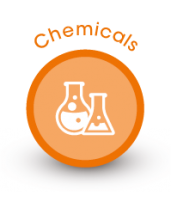
EPOS Technology Focus - Electrical Energy
EPOS Technology Focus: Within the scope of the EPOS project, extensive literature and market research reviews were performed in order to identify different technological, organisational, service and management solutions that could be applied to different industrial sites and clusters. The collected information will aid in establishing on-site and/or cross-sectorial industrial symbiosis opportunities; additionally, to enhance overall sustainability, performance and resource efficiency of different process industry sectors. Through the cooperation of project partners, a longlist of different technological options was created. Resource material for this list included: scientific articles, project reports, manufacturer’s documentation and datasheets.
Electrical Energy: Almost all of modern human activity is either directly or indirectly dependent upon a reliable and quality supply of electricity; this electricity is also a cornerstone of each energy intensive industrial sector. There are both constant incentives and demands for more sustainable and green electricity generation and its efficient use in households and energy intensive industrial sectors (e.g. steel industry). There have been rapid developments in the areas of renewable energy sources, storage systems, and advanced monitoring and control systems that can contribute to the more effective use of electrical energy. These technological developments should be integrated into the industrial environment.
 |
Photovoltaic cell |
| Solar thermal collector | |
| Flat plate collector | |
| Evacuated tube collector | |
| Parabolic trough collector | |
| Solar tower | |
| Fresnel reflector |

The EPOS project brings together 5 global process industries from 5 key relevant sectors: steel, cement, chemicals, minerals and engineering.
EPOS's main objective is to enable cross-sectorial Industrial Symbiosis (IS) and provide a wide range of technological and organisational options for making business and operations more efficient, more cost-effective, more competitiveand more sustainable across process sectors.
The research project receives funding from the European Community‘s Framework Programme for Research and Innovation Horizon 2020 (2014-2020) under grant agreement no. 679386. This work was supported by the Swiss State Secretariat for Education, Research and Innovation (SERI) under contract number 15.0217.











